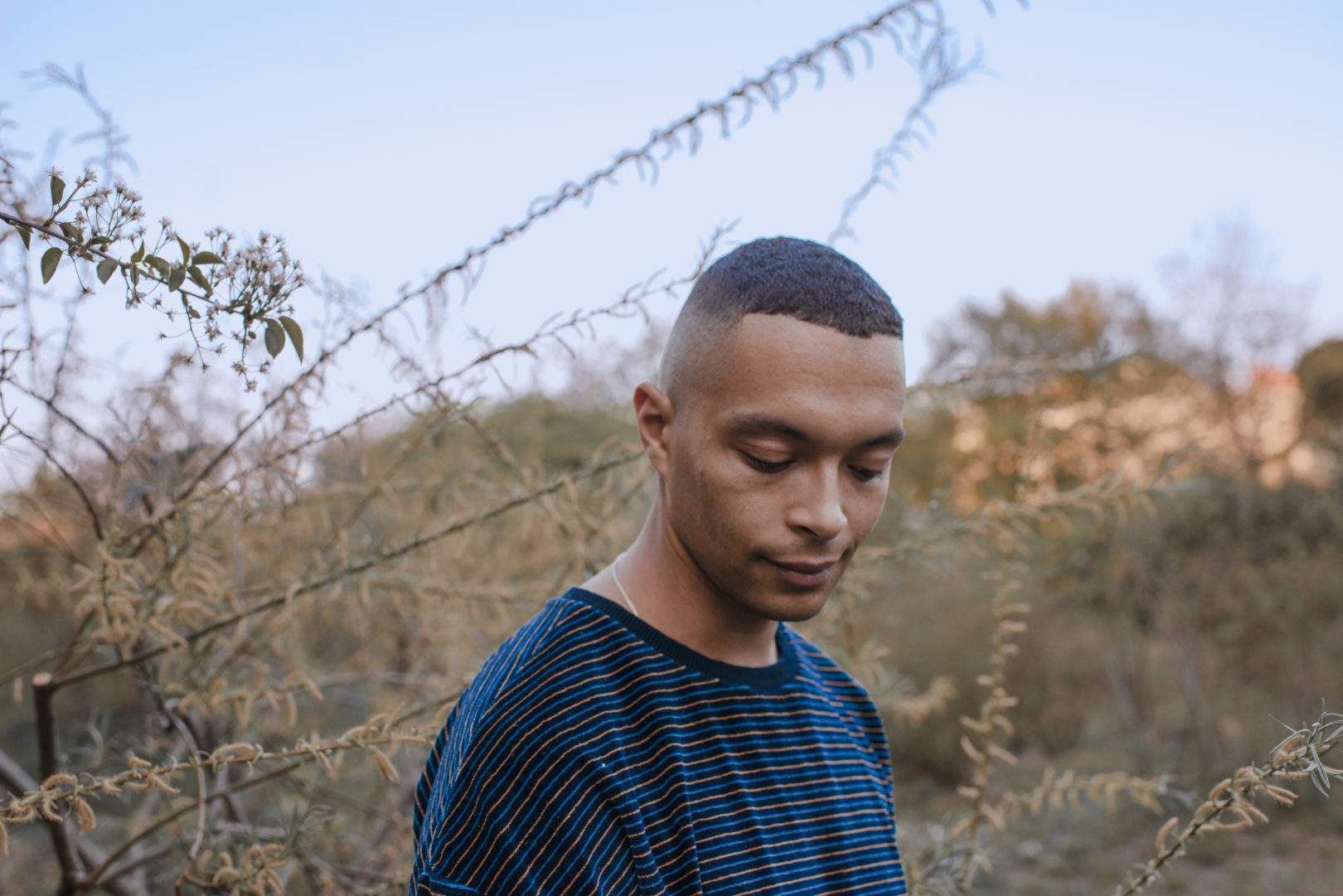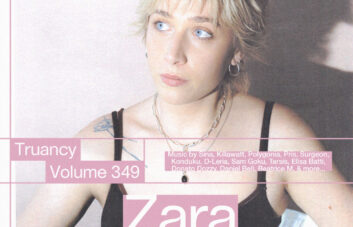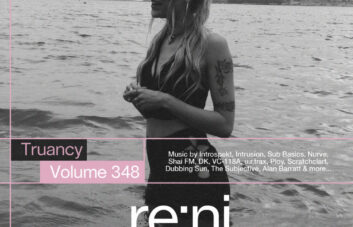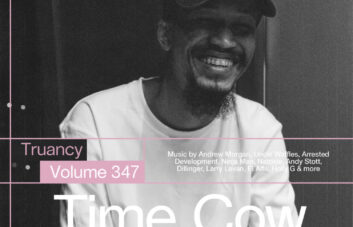For our 240th Truancy Volume, we have the great honour of hosting Bristol-based luminary Batu in the mix. Emerging as one of our favourite producers, DJs and curators in dance music over the last few years, Omar McCutcheon released the first compilation from his brilliant label Timedance in 2018: Patina Echoes highlighted some of the label’s regulars as well as new talent, also featuring individual releases by Laksa, Lurka and Ploy. After a packed few months for Batu himself with releases on other labels including R&S and XL Recordings, this week marks a return to his own imprint with his new EP, False Reeds. False Reeds consists of three percussion-driven cuts for the club, born out of vocal samples re-synthesized into new sounds as source. While it unmistakably sounds like Batu, with a thread of absorbing polyrhythms and a healthy injection of bass-weight, the EP is deliberately more in line with the warmer end of the spectrum rather than techno this time around.
As the DJ responsible for our favourite moments on dancefloors across Europe over the last years, hearing Batu play out still catches us by surprise and makes it feel like we’re discovering electronic music all over again – melting all styles on separate ends of the spectrum so flawlessly, making old tracks sound new, and the unfamiliar feel familiar. A notable moment last year was his last minute headline set at Selectors in Tisno; rarely have we seen an audience react to a DJ with such animation. Afterwards, it felt like everyone strolling the municipality shared that same experience of (re)discovering their love for dance music.
This is one of many reasons why we’re so excited to share Truancy Volume 240 with you. Batu’s Truancy Volume supplies an hour and a half of music that he would play that night, perhaps in an alternate timeline. It draws from several of his personal highlights from a recent month of touring across Europe, Asia and more, and showcases what he would play in a club environment. The mix includes “Shiratani” from his new EP, as well as new tracks by the likes of Metrist, Wata Igarashi and Patrick Flint, and illustrates why we think he’s one of the most exciting DJs around.
Hey Omar! How are you?
“Hello! I’m all good thanks, I’ve felt really positive and motivated this year. I have a tendency to try and do too many things and stress myself out, but I feel good right now.”
How was your return to Pickle Factory last weekend?
“It was awesome. The whole night felt like it had that right balance of focus and variety, but most importantly the vibe on the dancefloor was sick. I think after a fair few Pickle Factory nights we’ve kind of established a core crowd who are bringing a really nice energy, it feels very music focused. Rubin, who is part of the Make Me crew, said it reminded him of the old FWD>> days which made me smile (of course).”
Could you talk a little bit about your new EP False Reeds, which is out on your label Timedance tomorrow?
“It’s kind of the culmination of what I was writing last year. I work pretty slowly these days and only finish a few ideas at a time, so this is the final product of a lot of experimentation and chipping away in the studio, I suppose. “Statin (Dub)” was the first track I wrote, I had loads of fun messing around with vocal samples and re-synthesizing them into new forms to make kind of these half-human-half-alien sounds. That kind of became the concept of the EP from there on, I was experimenting with vocal samples to make something which was quite colourful and playful but also still full of otherworldliness. There are lots of vocal samples hidden in the tracks, not always that intelligible. I guess the title track is about as close I’ve gotten to writing a house tune. I don’t really like the idea of my music getting associated purely with being dark and oppressive, so it was nice to compose music a little more light-hearted. I wanted to write an EP which felt more balanced in this regard, “Shiratani” hits on dubstep and trippy techno, “Statin (Dub)” something a little more bashy, “False Reeds” is more housey… Maybe I’ll get some dusty rhodes samples in the next EP.”
A lot has happened for Timedance over the last year, including the final instalment of your party and also a first compilation. How do you look back on these last twelve months?
“I was really happy with the label output last year. After Timedance first got a load of hype I think I felt a bit of pressure. I don’t regret anything I’ve released on the label by any means but I was definitely thinking kind of like “shit, now people are listening I need to keep this up!”. Last year, I felt more relaxed and the records I put out all came together really naturally. I feel like it’s in a really good place where I work with a solid core of artists who all have their own developing narratives on the label. We can work at things slowly and not think about things in terms of purely of two tracks at a time. Moving forward though, there are also going to be some new (and potentially unexpected) names on the label. This has definitely been a new challenge because I’ve only ever worked with close mates. Things are maybe opening up a little bit more now.”
You’ve spoken quite in-depth about your experiences behind the decks, but I’d be quite interested to hear how you prepare for your sets. What do you consider when preparing for a gig? How do you organise your music, if at all?
“I’d love to be more meticulous with my planning, but I’m bad for leaving it all quite last minute, haha. I think what this has done though is given me faith that I can leave myself lots of room to maneuverer in the moment. I always look over the set times and line up and think about different set arcs/tempos which could be cool to show people in that moment. Sometimes I’ll have a start and end point in mind, but I won’t quite be sure how I’m gonna make it there. That can be really fun. Usually, what I’m going for doesn’t really become clear to me until a while into a set, often the playlists/records I’ve packed specifically for the gig don’t seem to be the right ones so I end up going off-piste through my digital music.
“I don’t have much interest in preparing for what a crowd want and executing a perfectly constructed plan, to me that kind of approach is almost like damage limitation, cutting out as many risks as possible so that it’s unlikely to go wrong. I don’t always feel confident. I get imposter syndrome a lot actually, but I’m not usually worrying about pleasing everyone who comes to see me play. I spend a lot of time during the week buying music and cataloging/tagging in Rekordbox, I get quite nerdy over that stuff… It means I can have way more music at my disposal that I’m confident in playing.”
With your background in sound design, I’d be quite interested in hearing what sparks inspiration for you – as I imagine it might come from sonic sources other than other music. Also, where do you go when you have a writer’s block, how do you overcome it?
“Yeah, sonic sources tend to spark ideas, really. I feel like because I write music using software on a pretty fast computer I need to limit myself a bit, a good way to do this is choosing a specific process or sound palette to use and letting creativity come from there. I come up with little ideas of signal chains, or I’ll hear a sound that gives me a idea to focus in on. To be honest, because I’m so busy these days I don’t get to write as much music as I’d like, by the time I get in the studio often I’ve got loads of notes on my phone of ideas.
“I still struggle with big dips in creativity though, my confidence in my own music is pretty brittle. Usually when I’m struggling to write music it’s because I’m putting pressure on myself to do something specific and not being mindful to feel free in the process. It’s something I think about a lot listening to other people’s music, especially demos. If you go and sit down in the studio with a weight on your shoulders about your release schedule then you’re probably going to make something more conservative than you could, and that’s not really something I’m looking for in terms of my own productions or the label’s output.
“I think for me the best art feels like it’s discovered it’s own little world, like there’s enough depth in the processes that it becomes something almost mystical; I think a lot my tastes revolve around this idea, whether it’s M.E.S.H. or David Sylvian or a Jean-Pierre Melville film. Perhaps the problem though is that this is something which takes a long time and years of dedication, but there’s a lot of pressure now (on younger people especially) to make artistic work ‘successful’ and financially viable quickly. I’m guilty of this too of course, and I realise this is something which is easy for me to say right now – but I think we could all benefit from being more patient with ourselves. I love DJing and what I’m doing right now, but I definitely want to take more big blocks out of my schedule to really focus on writing at some point.”
What do you hope to see change in electronic music in the next ten years, both in the UK and further around the world?
“There’s a lot of stuff I’d like to see happen for sure: less nostalgia, less promoters who want to build a empire, more black people in clubs.
I think fundamentally dance music should be a subversive medium which should challenge society. That doesn’t mean it shouldn’t be fun or have a sense of humour, but it should be provoking thought and challenge perceptions too. It was, and always will be political in some essence. Eris Drew articulated it well here. This isn’t always so clear in a landscape where underground music is mixed with corporate sponsorship and the like though.
The world is in a strange place, there’s a lot weight put into culture from the past, but things which relate more the the present are often seen to be out on a limb, especially in clubs. But at the same time there’s so much great new music and exciting ideas happening all over the world, technology has broken down a lot of barriers. I think things are slowly moving in a good direction, there’s some exciting projects and festivals popping up.”
What can you tell us about the mix you’ve recorded for us? How did you go about getting the tracklisting together?
“It was recorded shortly after a busy month of gigs where I had a Asia tour, a 7 hour set in Berlin and loads of other great nights. I wanted to hit on some of my favourite moments and vibes from those gigs. I don’t like the idea of recreating any moments too specifically but it was definitely a inspiration to draw on. I suppose a studio mix is a opportunity to make a statement about what I want to achieve as a DJ, I wanted to represent what I might play in a perfect club environment. It starts at a pretty intense level because I was imagining I was playing last on the line-up, it takes a few twists and turns but eventually I’m left playing to a handful of people when the lights come on. It’s either that or a insane Tomorrowland-esque festival in 2030 called Bristol-Bass. There’s new music from myself, Bruce, Metrist, Happa, Wata Igarashi and some less established Bristol producers Glances, and Patrick Flint. Of course, there is some forthcoming Timedance material in there too.”
What does the rest of the year hold for Batu, either for Timedance or other projects? Anything you’re particularly excited about?
“There are lots of plans which I can’t talk about just yet ;) sorry. The next two records are mastered and will be out this year, hopefully there will be at least four this year. Next year is the 5th birthday of the label which makes me feel old. There is going to be some special news regarding that by the end of the year.
Finally, do you agree with Guardiola’s that Silva was the strongest rising player in the league this season?
“David or Bernado?!?! Sterling is my boy though, he’s proved all the doubters wrong, scored a load of goals and called out the endemic racism in football media culture better than anyone else in one season. Love him.”
Batu’s False Reeds is out on Timedance on May 17th. Buy the record here.
Photo credits: Kasia Zacharko
Batu: Bandcamp, Soundcloud, Facebook, Twitter, Instagram, Resident Advisor
Timedance: Bandcamp




